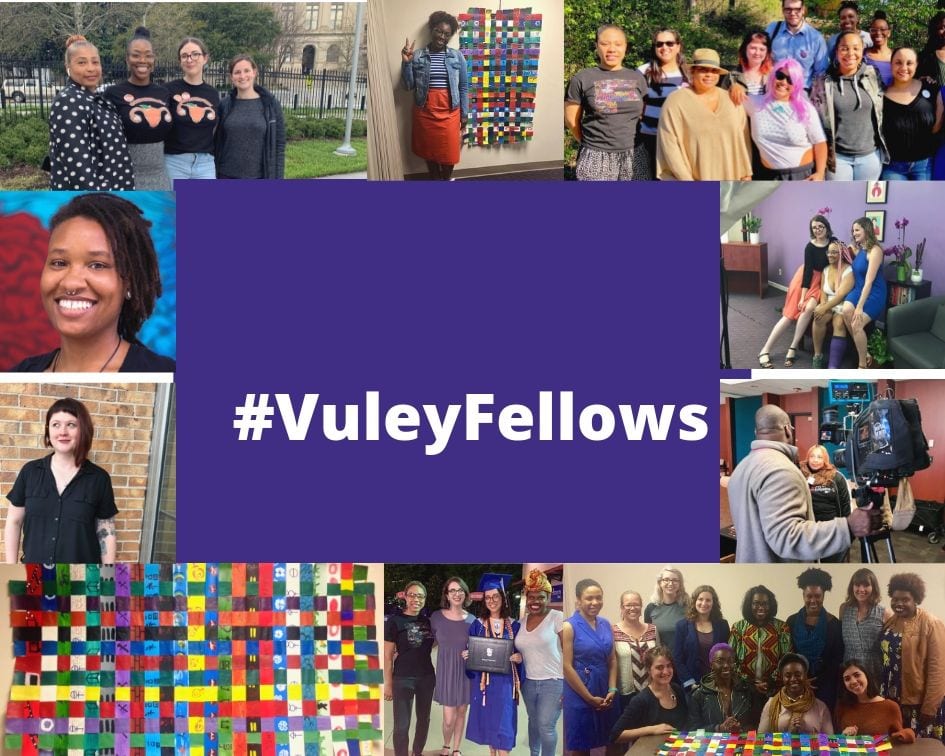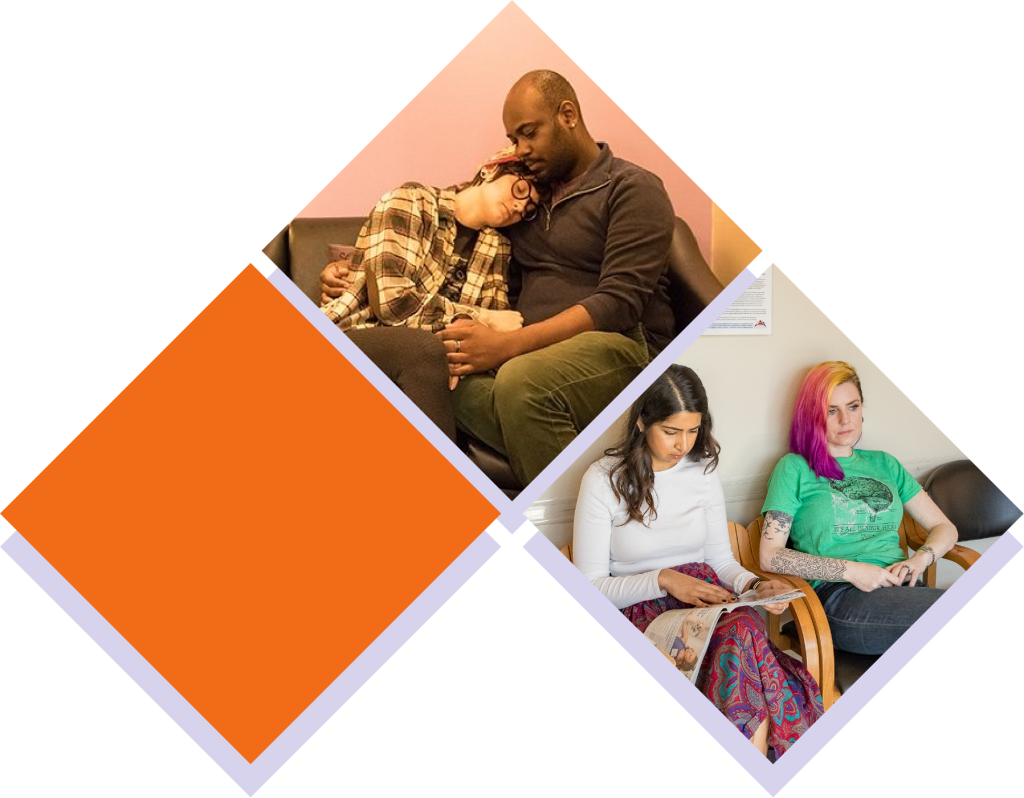Below, graduates of our first two alumni cohorts (2017 & 2018) share their reflections about the Errin J. Vuley Fellows Program, this past legislative session, and reproductive justice.
What are your hopes and dreams for reproductive justice?
- “I hope to complete research on what marginalized communities need within reproductive justice and continue to create spaces for RJ folx to heal.” Khye T. ’18
- “Reproductive justice for all! This is the dream right now, but I think it will be the reality through all of our hard work.” Kristen O. ’17
- “…I’ve seen the Reproductive Justice movement band together and push back on bad narratives in order to advance and grow the movement. I hope (and know!) we will keep this momentum going, and in the end, we win.” Libby M. ’17
- “With the passing of the abortion bills around the country, my hopes are that women, young and old, will understand the importance of their voices and input regarding reproductive justice in political spaces and answer the call by speaking out….” Pamela W. ’18
- “That everyone will just learn to mind their own damn business. I want people to realize how weird it is to wonder how other people have sex and who they have it with. I want everyone to be outraged at the black mortality rate (here and globally). I want reparations for all oppressed folx. I want emotional labor to be highly paid work. I want comprehensive sex ed for all. I want our elected leaders to enact policies that protect mother earth at all costs. I want an end to all gender and sexual violence. I want their to be a vacation island get away for black women only that I could go to decompress from the world’s shenanigans. Overall, I want people to be able to do the things they want without others impeding on those wants.” Marieh S. ’17
- “I am nervous for the future but hopeful that this is bringing out more people who did not previously feel a need to defend reproductive rights. Although things are getting more polarized, I’m seeing more people get activated and engaged in the politics that affect them. I hope this force continues and people realize that they have the power to not only help themselves but to help those that are disenfranchised by our current society.” Kira K. ’17
- “My hope is to continue to try to mainstream RJ. It is truly a framework that everyone can incorporate in their day-to-day lives and apply to how they show up to work across sectors.”Jalessah J. ’18
- “…legal and safe abortions, for sex work to be decriminalized, comprehensive sex education, and for rape culture to be dismantled everywhere.” Nicole G. ’18
- “I hope that people don’t give up as much as I hope that we over correct what is being done because people are so much more invested in it.” Liz R. ’17
- “To continue to advocate for access and quality health care for marginalized communities of color.” Brianne M. ’18
- “…a revolution to move towards and envision a future.” Sam H. ’18
- “…[N]ow is a key moment where support, the generation of evidence and activism, is key. I hope that people gain a broader understanding of reproductive justice as a truly intersectional issue that needs to be at the forefront of achieving any kind of social justice — economic, gender, racial, etc.” Rachel S. ’17
Following your fellowship, where have you applied a reproductive justice framework?
- “…In creating programs and in conversations with clients at my new job.” Sam H. ’18
- “I’m continuously applying a reproductive justice framework with my advocacy of incarcerated women because even with incarceration, it’s imperative for women to decide the outcome of pregnancies as well as education of their reproductive health.” Pamela W. ’18
- “When I was writing my personal statement for admission into my Master’s program, I centered my personal statement around reproductive justice. I honestly think [reproductive justice] is what made my statement so stellar and what garnered me a partial scholarship. I recently completed a fellowship with YWCA’s Georgia Women’s Policy Institute. When drafting our policy, I made sure that all the work I contributed included a reproductive justice framework and end goal.” Marieh S. ’17
- “I’m trying to apply a [reproductive justice] framework that I learned from FWHC to my museum job in New Orleans, by trying to gain funding through ethical means and helping promote a paid internship program (museums are constantly using unpaid interns which only further perpetuate the inequality within the field). We are in the midst of trying to deaccession culturally sensitive material that should not be in our collection, and I have been vocal about going to those communities to ask them what they would like to happen to the objects.” Kira K. ’17
- “Advocacy for sexual assault victims and reproductive justice are very much related in my mind, but I’ve noticed the communities are very separated. It’s even uncommon to hear the word “abortion” at all. RJ is all about the right individuals have to make decisions and be safe and respected. This is essential for survivors of sexual violence, and I am constantly trying to apply the RJ lens to my own work and share the framework with co-workers.” Kristen O. ’17
- “As a public health practitioner working in the field of international sexual and reproductive health, reproductive justice has been a key framework for my work. Thinking beyond simply providing communities with access to health services and instead reflecting critically on how health is part of a broader framework of rights ensures that our work is ethical, empowering, and intersectional is key….” Rachel S. ’17
- “My personal values are in alignment with RJ. Since my fellowship, I’ve better equipped to incorporate the framework into my teaching pedagogical practices and learning/training spaces I facilitate.” Jalessah J. ’18
- “At my job at Feminist Center, I use a reproductive justice framework everyday! I lead volunteer orientations where I introduce reproductive justice, develop tabling materials for the general public using reproductive justice concepts, and I work in coalition to advance reproductive justice in our state.” Libby M. ’17
- “I applied to be a Community Health Worker with my graduate school, Florida International University. I got the position, so I will be doing community work in South Florida all summer….” Brianne M. ‘1
- “Last year, with Feminist, I was able to put on a panel about the impact of the rape backlog bill. It was amazing that we had a full house. I also worked as a sexual assault survivor advocate for Crisis Line & Safe House of Central Georgia…I was able to advocate so much more effectively for my clients because of the leadership skills and knowledge I gained from my time at Feminist. I started a full stack web development program…The web has become a battleground for false information versus truth, and Feminist has armed me with the facts and confidence that fuels my need to create engaging and thoughtful content. I’ll be hoping to grow these skills further as an Urban Leaders Fellow where I’ll be tasked with a policy project that will impact the local Atlanta community. Feminist has provided me with the skill set to get this far and reach even farther. Without Feminist, I’m not sure I would have found web development or been as effective of a sexual assault advocate. Anyone who wants to make a change in this dangerous world would be lucky to learn from the best and brightest of Feminist Women’s Health Center.” Liz R. ’17
Please share any wins, losses, and lessons learned from Georgia’s 2019 legislative session.
- “The bill that I worked on as a YWCA fellow was passed so there was a win there, but I do feel like healthcare was left in the dust this session. The amount of force used to ignore constituents was alarming as well.” Marieh S. ’17
- “Calling [a legislator] is great self-care in that you feel heard.” Liz R. ’17
- “I am pretty scared and frustrated, but I feel lucky to be part of such a great community of activists.” Nicole G. ’18
- “This was my first session at the Capitol — and it was truly a learning experience for me. From learning the process for speaking with elected representatives, to the decorum, and trying to keep people safe. Session was anxiety inducing for me, but it was helpful to have the support of partner orgs, folks from my fellows cohort, and community members.” Jalessah J. ’18
- “I’ve been calling and advocating in New Orleans, and our session is’t over yet.* Louisiana is also trying to pass a similar anti-choice bill like Georgia’s.” Kira K. ’17 * On May 29, 2019, Louisiana’s governor signed a six weeks abortion ban into law.
- “RestoreHER collaborated with a number of organizations, including Feminist Women’s Health Center, YWCA, and Healthy Mothers, Healthy Babies Coalition of Georgia to achieve a unanimous historical win for the passing of HB345! I learned a number of lessons that include how you may have to give up important points of a bill for the overall benefits…it takes group participation, strategy…and is relentless work until the bill is SIGNED.” Pamela W. ’18
- “Although I haven’t been on the front lines, working with those who have has been a stark reminder that these are the folx who need healing spaces the most. That it takes everything in these folx to show up day in and day out to fight against our rights being signed away.” Khye T. ’18
- “I lobbied at the Capitol during my lunch break along with other colleagues…I was cheered to see so many people advocating so firmly for the right of all to a full spectrum of healthcare services including abortion.” Rachel S. ’17
- “The losses were big and overwhelming, but we had some really big wins like the Dignity for Incarcerated Women Act, which keeps me going. Also, I learned a lot about the limits of my endurance.” Libby M. ’17



